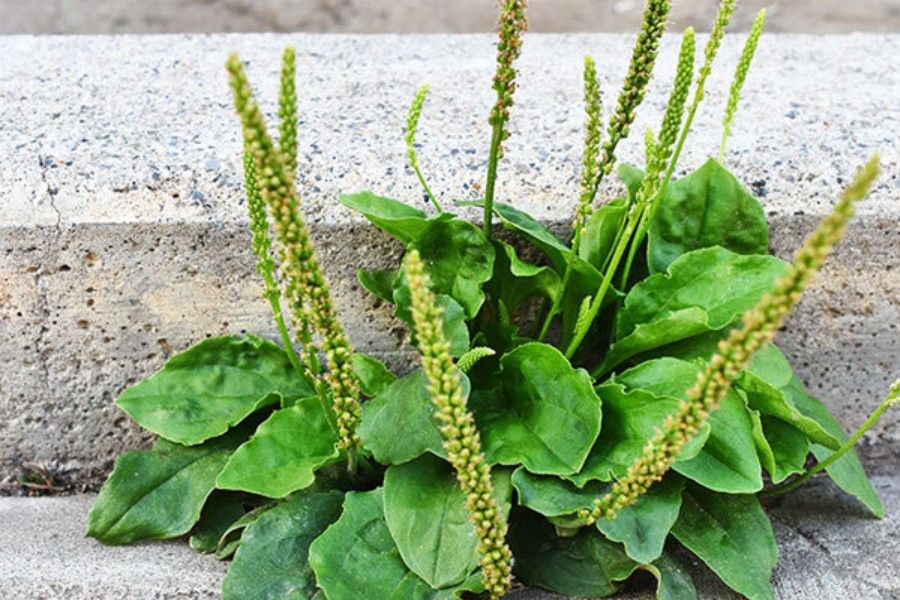Quality and Satisfaction is Always Our Priority
Quality and Satisfaction is Always Our Priority

Nerve grass is a plant that we can often encounter outside, but most of us don't know its name.
Although it is often thought to be a wild plant, nerve grass can be consumed and is a very useful plant. Nerve grass takes its name from the fact that the veined parts of its leaves resemble nerves and have positive effects on the nervous system. The plant, whose scientific name is ‘Plantago Lanceolata’, is also known as vein grass, nerve grass and nervous grass. Plantaginaceae family nerve grass is a flowering plant that is seen in regions such as North America, Asia and Europe. Its flowers extend upwards from the center of the plant and there are varieties with thin and thick green leaves. At the same time, nerve grass has been used in traditional medicine for many years, processed in different ways. The nerve herb plant can be consumed in many different ways. However, as it is a very hardy plant, it can live in various climates for a long time. Nerve grass, which has anti-inflammatory effects, is a plant containing many vitamins and minerals. It contains vitamin A, vitamin K and vitamin C. It is also a very useful plant with calcium, potassium, iron and magnesium.
What are the Benefits of Nerve Grass?
Nerve grass contains many vitamins and minerals. In this way, it is known to be good for many diseases. The benefits of vascular herb, which is suitable for consumption in different forms, are as follows:
What does nerve grass do?
Vascular herb is a plant used in the traditional treatment of many diseases. Thanks to its wound healing power, it helps to remove wounds affecting the skin surface such as boils, foot ulcers and warts. In addition, although it creates a natural laxative effect, it can also be used to control diarrhea in some cases. However, it should be used judiciously in case of diarrhea. Excessive use may cause some unwanted side effects.
Nerve grass, which can be used in different forms, can help relieve cough and remove mucus from the respiratory tract, especially when used in tea form.
How to Consume Nerve Grass?
Nerve grass can be consumed in many different ways. It is usually used in cream form, raw form, cooked, as an extract and in tea form.
Use in cooking: It is known that nerve grass is used in cooking. Green leaves can be used raw in salads. In addition, individuals who want to benefit from its benefits can also use nerve grass in meals.
Use in cream form: Nerve grass is usually found in various places in cream and ointment forms under the name of nervous grass or vein grass. It is generally used in ointment form for reasons such as healing wounds on the skin and insect bites.
Use in tea form: The most common use of nervine is in tea form by drying and brewing the leaves. It is often used as an auxiliary home remedy to ease digestion and relieve problems such as constipation. Nerve herb tea is prepared by drying the leaves and then steeping them.
Recipe for nerve herb tea for one person:
What are the Harms of Nerve Grass?
Nerve grass is a plant known for its benefits. However, it may not show positive features in every individual. Nerve grass may have undesirable consequences for some bodies. Therefore, you should consult your doctor before using nerve grass. The harms of nerve grass are as follows:
Nerve grass has a relaxing effect. With this feature, it can calm the person and create sleepiness. For this reason, nerve grass should not be used especially with sedatives and sleeping pills.
Nerve grass is a plant with a laxative effect. For this reason, it should be used in moderation. Excessive use can cause diarrhea and some stomach problems.
Excessive use of nervine can cause unwanted damage to the kidneys and liver. Therefore, excessive consumption should be avoided.
Nerve herb may not be useful for some allergic bodies. In case of a possible allergy, symptoms such as rash and shortness of breath may occur. For this reason, you should definitely consult your doctor before using nerve grass.
Nerve grass may cause bloating and gas in some people.
Nerve grass can cause various damages in some bodies. People with chronic or acute illnesses, pregnant and breastfeeding mothers should consult their doctor before consuming such foods. At the same time, nerve grass should be consumed in a maximum of 1 glass a day and excess consumption should be avoided.